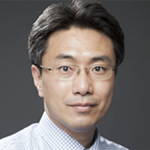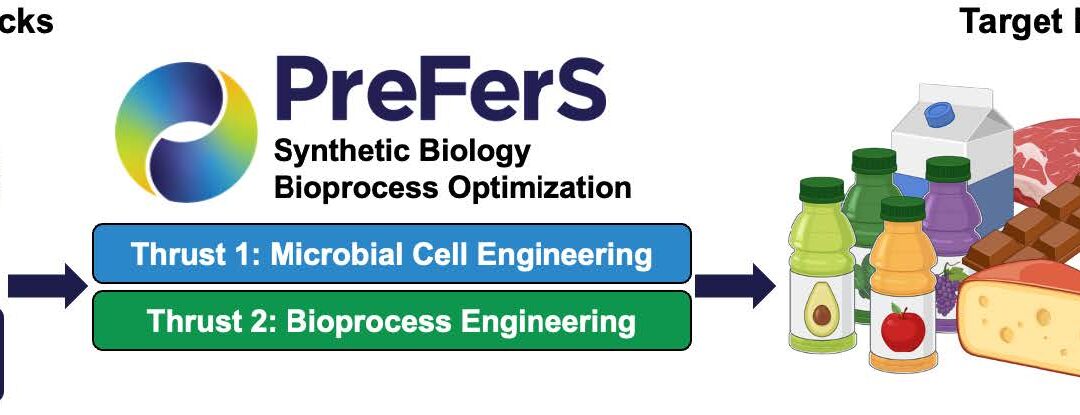Urbana, Ill. — Feeding an ever-growing human population is one of the major grand challenges we face — especially with the impact agriculture can have on climate change. University of Illinois Urbana-Champaign researchers and partners in Singapore are taking a novel approach to this challenge: creating food building blocks at the microbial level.

YONG-SU JIN
The team, led by Food Science & Human Nutrition Professor Yong-Su Jin, has received a five-year, $14.8 million-dollar grant to develop the “Centre for Precision Fermentation and Sustainability” (PreFerS). Singapore’s National Research Foundation (NRF) made the award to the Illinois Advanced Research Center at Singapore Ltd. (Illinois ARCS), a U. of I. affiliated center.
PreFerS will focus on enhancing the reliable, cost-effective production of safe, nutritious, and appetizing foods. More specifically, the research will advance technologies for microbial cell engineering — creating metabolic pathways in microorganisms — to convert readily available compounds like sugars into targeted, nutritional molecules including alternative proteins, healthy lipids, and vitamins.
Through this work, PreFerS seeks to improve food supply chain resilience, reduce environmental impacts of food and nutrient production, and directly address hidden hunger — the growing epidemic of micronutrient deficiency.
“By converting sugars and inedible parts of crops into healthier foods, we can take what is already provided in plants and use it to create a more balanced, nutritious, and good-tasting diet,” Jin said. “We believe this work can play a major role in human health and address inequities in food supplies the world over — without contributing to global climate change.”
The PreFerS leadership team from Illinois also includes Ting Lu, professor of bioengineering; Michael Miller, professor of food science and human nutrition; and Vijay Singh, professor of agricultural and biological engineering. U. of I. co-investigators include Christopher Rao and Huimin Zhao, professors of chemical and biomolecular engineering; Jeremy Guest and Na Wei, associate professors of civil and environmental engineering; and former Illinois Research Scientist Yalin Li, assistant professor of civil and environmental engineering at Rutgers University.
The PreFerS team is supported by the Institute for Sustainability, Energy, and Environment (iSEE) and assisted by Guest, iSEE’s associate director for research; and Madhu Khanna, iSEE’s director and Alvin H. Baum Family Chair. Guest and Khanna guided the 18-month proposal development and related activities with the NRF. “I am grateful for the time and work iSEE has devoted to help us secure the funding for PreFerS, and I look forward to the Institute’s continued support,” Jin said, adding that Tamer Basar, former executive director of Illinois ARCS, and Jayson Koh, managing director of Illinois ARCS, were also instrumental in securing the NRF award.
“We have seen food companies successfully produce novel food ingredients with precision fermentation, and our scientific understanding and technological capabilities are growing rapidly. The first thrust of PreFerS will improve the precision fermentation toolset, maximizing efficient production of target food products and minimizing unnecessary byproducts,” Guest said. “The second thrust centers on bioprocess engineering and will focus on scaling up fermentation in a way that is both cost-effective and environmentally responsible.”
PreFerS will be anchored at NRF’s Campus for Research Excellence and Technological Enterprise (CREATE) on the National University of Singapore campus. The Illinois ARCS offices are also at CREATE.
“Food security and sustainability are a major concern in Singapore and globally,” Khanna said. “We believe the work done by this new research team on a fermentation-based food supply will help Singapore reach its goal to produce 30% of its nation’s nutritional needs locally by 2030.
“And the results of this interdisciplinary effort will have far-reaching implications for safe, healthy, and sustainable foods across the world, while also mitigating the effects conventional agriculture can have on the climate.”
The PreFerS team also features several Singapore-based researchers, including affiliates from the National University of Singapore, Nanyang Technological University, Singapore Institute of Technology, and Agency for Science, Technology and Research. Joining Jin as co-program lead is Wen Shan Yew (biochemistry, National University of Singapore), who earned his master’s degree and doctorate from the U. of I.
“The strength of this collaboration lies in our ability to unite global partners in addressing global challenges,” said Germán Bollero, dean of the College of Agricultural, Consumer and Environmental Sciences at U. of I. “By bringing together diverse expertise and innovative minds from Illinois and Singapore, we are not only pushing the boundaries of scientific discovery but also unlocking untapped potential in precision fermentation. This partnership exemplifies how collaborative efforts can drive transformative solutions for food security and sustainability, ultimately benefiting communities worldwide.”
U. of I. has had a research center in Singapore since 2009. This engagement was reconstituted in 2023 as Illinois ARCS, a university-affiliated Singapore public company to foster cutting-edge research by Illinois faculty and Singapore partners. In addition to PreFerS, Illinois ARCS also hosts the Trustworthy and Secure Cyber-Plexus for Digital Communities program (TSCP-DC) with David Nicol (electrical and computer engineering and Information Trust Institute) as its principal investigator. Illinois Chancellor Robert J. Jones serves as Illinois ARCS chairman and Illinois Vice Chancellor for Research and Innovation Susan A. Martinis is Illinois ARCS vice chair.
— News release by Tony Mancuso, iSEE Communications & Public Affairs Director
